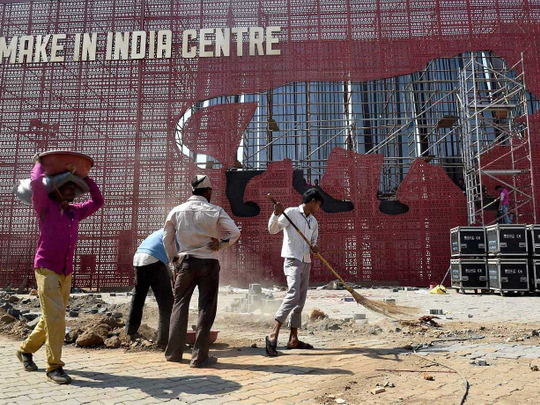
Dubai: India’s 100-strong ‘smart city’ network rollout and its renewable energy development needs could be primary beneficiaries of the UAE channelling significant investments into that economy. Also ripe for an investment push would be the across-the-board modernisation of its railway infrastructure, plus an upgrade of India’s national highways.
The UAE’s sovereign investment funds and government-owned enterprises could also find a home in greenfield airport projects at select Tier 2 and Tier 3 cities in India, according to corporate chieftains in the UAE.
But while India is on the cusp of a substantial investment flow overseen by the UAE Government, every effort should be made to smoothen the process. The clearly defined goals risk a chance of being missed if there are gaps between what the central government wants and how quickly individual Indian states are willing to let that happen.
According to Dr Azad Moopen, Chairman and Managing Director of Aster DM Healthcare, “With many states having almost autonomous functions, India has to look at decentralising its approach to business development. It is important that individual states take up these initiatives with foreign partners.”
Which again goes back to whether India can rid itself of systemic red-tapism. The Government of India could put a project on the fast track, only for the process to sputter to a halt at the ground level over the approvals that needed to be given by the state. In the past, there have been blowbacks for UAE businesses that had invested in India’s telecom sector and in real estate development activities.
“For India to grow as an economic superpower and major player in the global market, it is essential that more transparency and less bureaucracy are implemented,” said Moopen. The nation is still struggling to attract substantial foreign direct investments despite past political promises to attract international capital.
“We must, therefore, implement a single-window clearance to speed up approvals and encourage transparency to avoid corruption... and only then can we truly grow as a nation. I am more than confident that our current government is on track to fulfilling these promises.”
The Narendra Modi government has been clearing some of the hurdles, in particular easing up the process for foreign direct investments across key sectors. The ‘Make in India’ initiative has had incremental momentum gains.
It has also been making the right noises over another concern that global businesses have had on their India exposures. “The government has made it clear that there will be no retrospective tax implications for foreign-owned businesses,” said Sudhir Shetty, Chief Operating Officer - Global Operations at UAE Exchange. “We believe there are key discussions on this that might come up during the budget session this month.
“India has more work to do to raise corporate sentiments on investment-related issues.
“For those UAE-based government investment vehicles, there are solid returns on investment that can be made in India’s critical infrastructure projects. The UAE state visit to India raises the possibility of more engagements in the investment flow into this key sector.”
On its part, the India Government recently announced “substantial changes” to its foreign direct investment policy. “Norms have been eased in 15 major sectors, and (there are) plans to constantly review the FDI policy to achieve economic objectives,” said Jayshree Gupta, Partner at Baker & McKenzie Habib Al Mulla, the law firm. “Intended investments in infrastructure and ports gives the UAE opportunities.”
Hope springs eternal for expat Indians
Two issues continue to tax the low to mid-income expat Indian in the UAE and Gulf - the 15 per cent service tax on remittances charged by the Indian Government, which is being passed on to the sender.
The second issue, and one which still eludes a solution, has to do with the super-premiums charged on airline tickets to and from India during the peak season.
On both counts, there are hopes for some sort of resolution.
“The industry has taken up the service tax issue with the Indian Government’s finance secretary and, hopefully, there can be a rollback during the upcoming budget,” said Sudhir Shetty of UAE Exchange.
“We have received assurances to this effect. We have informed the ministry that the service tax imposes maximum cost on the sender because, in most cases, the banks or non-banking finance companies handling the transactions pass on the cost.”
When it comes to the sky-high airline prices on the India sector, Dr Azad Moopen of Aster DM Healthcare, said: “There must be an open-air policy especially given that a huge portion of the population of the UAE are Indians. Seamless connectivity between the two countries will naturally increase efficiency and service levels and bring down the prices. The state visit shall be a very good occasion to sign a treaty between the two countries.”












